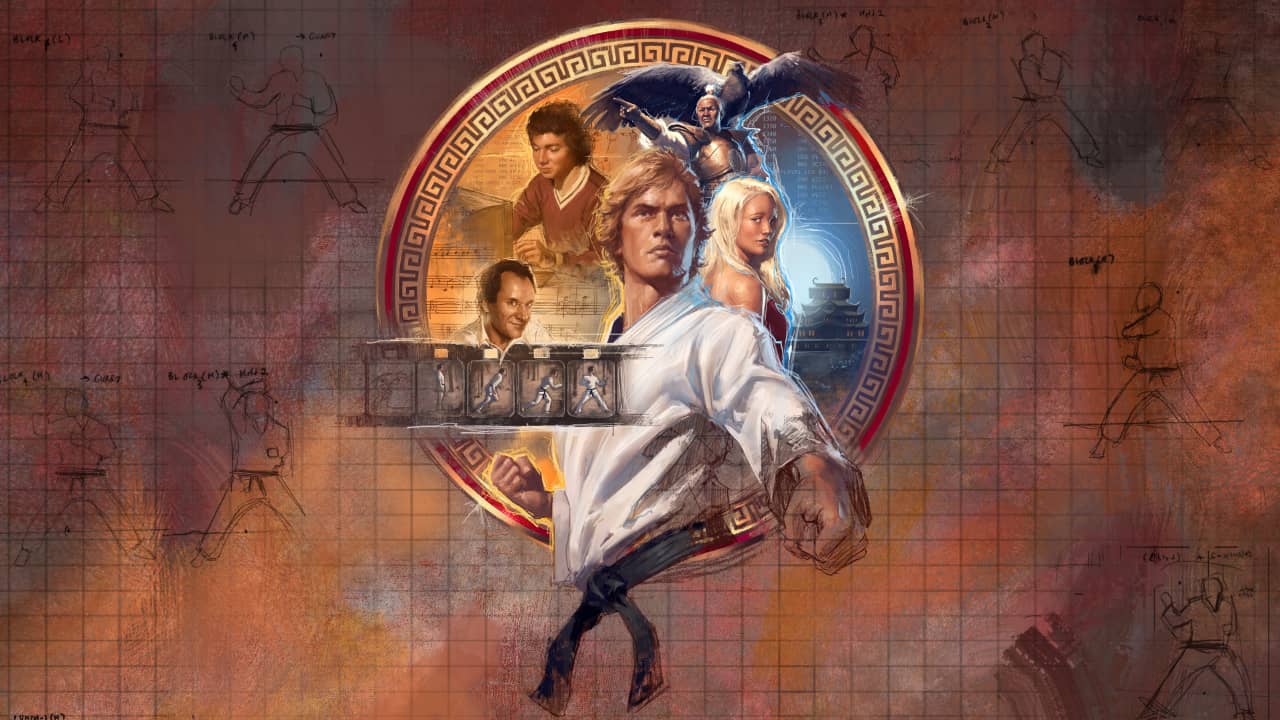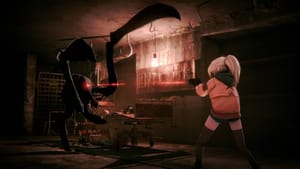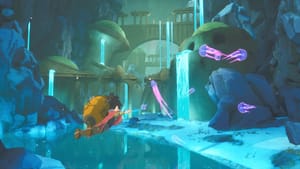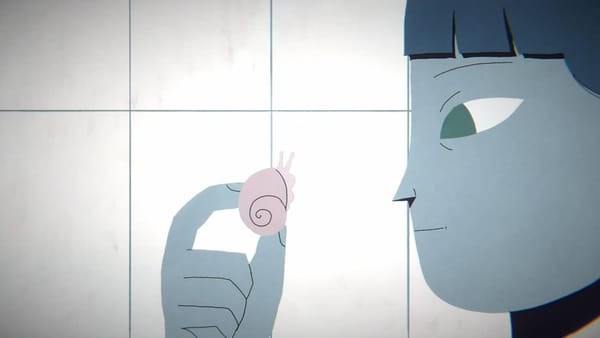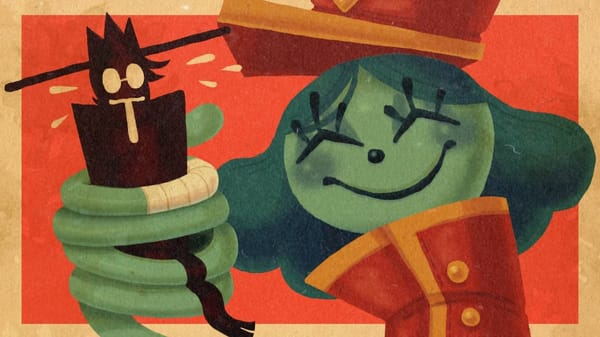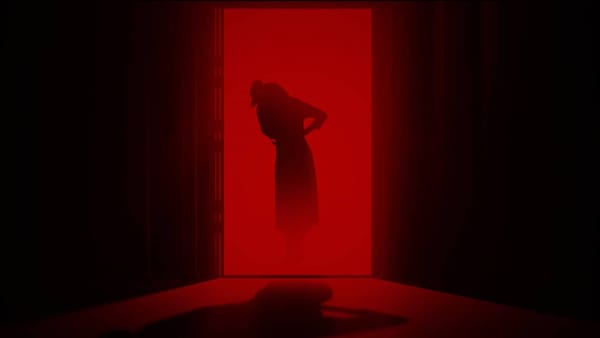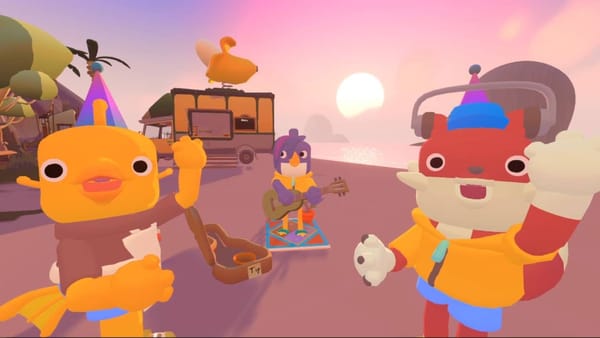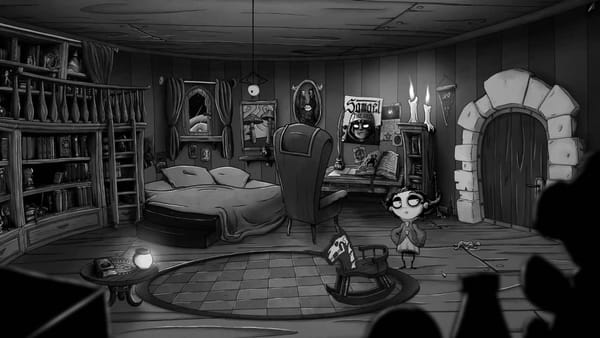The Making of Karateka is more than a Blu-Ray extras disc; it’s a part of gaming history – something the developers, Digital Eclipse, set out to achieve with this unique interactive experience. Spoiler: mission accomplished.
Perhaps you aren’t familiar with the name Jordan Mechner. That’s ok. Auteur theory is slowly adapting to game development, and it’s not just Hideo Kojima that should get all the attention, but all the pioneers like Peter Molyneux, Tim Schafer and Jeff Minter.
But enough of the history lesson as you have all of that to experience in The Making of Karateka. Go Wiki it now, and you’ll find out that Jordan was behind one of the first genuinely cinematic game experiences, albeit a little crude for today’s standards, but the year was 1984, and he did all of this starting at 18 years of age.
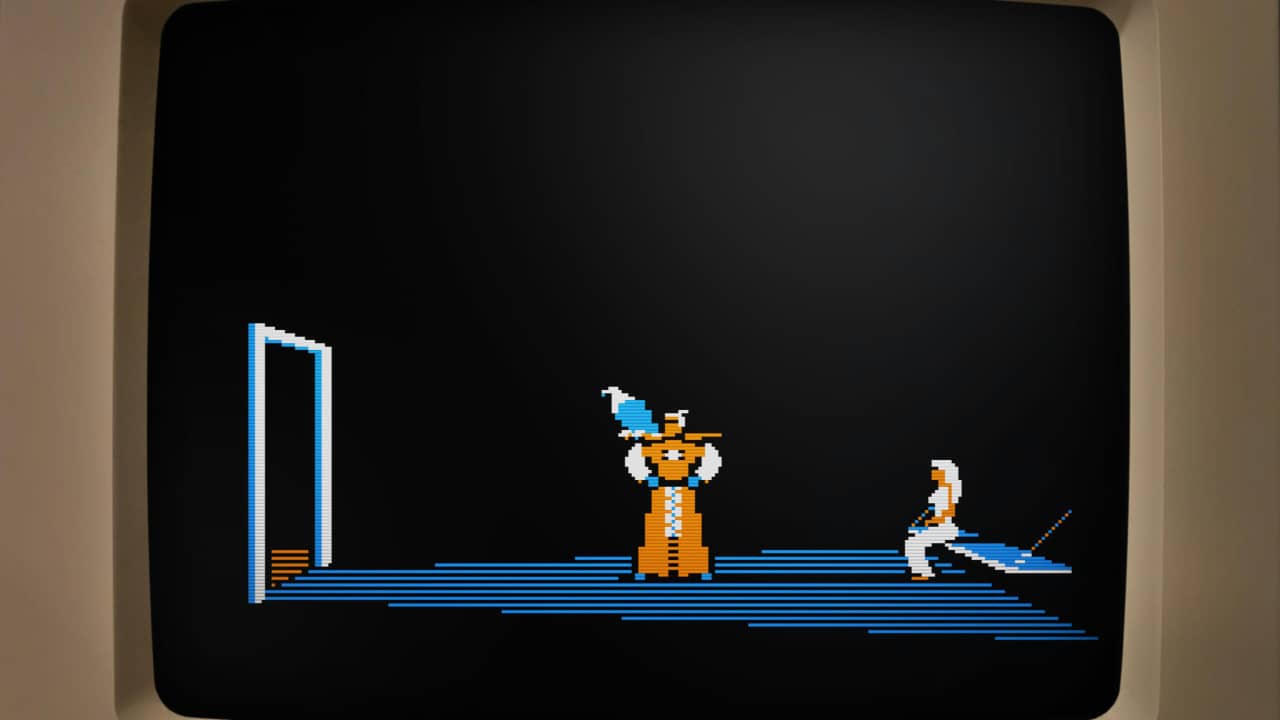
The Making of Karateka Review (PS5)
This review isn’t supposed to be a spoiler and share with you all the facts you’ll learn through this stimulating experience, but it’s important to point out what you’ll see along the way, such as Jordan’s storyboards, copies of letters sent to the publishers (the infamous Brøderbund), and in terms of spectatorship, interviews with him and his father Francis who was an absolute inspiration.
The Making of Karateka isn’t solely a passive experience, however. Before Karateka, Jordan made Asteroid Blaster – an unpublished clone of Asteroids, plus his spin on the shmup called Deathbounce. Both games have playable versions, including a remastered version called Deathbounce Remastered. Something with a slightly modern twist.
More importantly, there are playable versions of Karateka – including Jordan’s prototype, all the way through to another exclusive called Karateka Remastered. I’m not always a fan of remastered/reimagined classics (Shadow of the Beast, for example), but this newer edition is infinitely more playable yet brutally hard.

Earn Your Black Belt
And that’s one of the challenges with older titles: the difficulty level. For the earlier games, there are a few options such as screen ratio options and borders, save states, plus a rewind option – essential for the earlier Karateka games as such a simple concept can take ages to play through!
These little additions to The Making of Karateka presents a reasonable degree of freedom to those unfamiliar with the style of play or perhaps never finished the original back in the day. While we’re walking down memory lane, I recall playing this on two different platforms!
I was always an IK+ fan on the Amiga, and while a few bells rang during the trailers, I didn’t immediately remember Karateka other than the artwork. But… after the music sections for the game, I immediately remembered playing it on the C64 and the IBM PC – also Akuma’s bloody bird who always killed me!
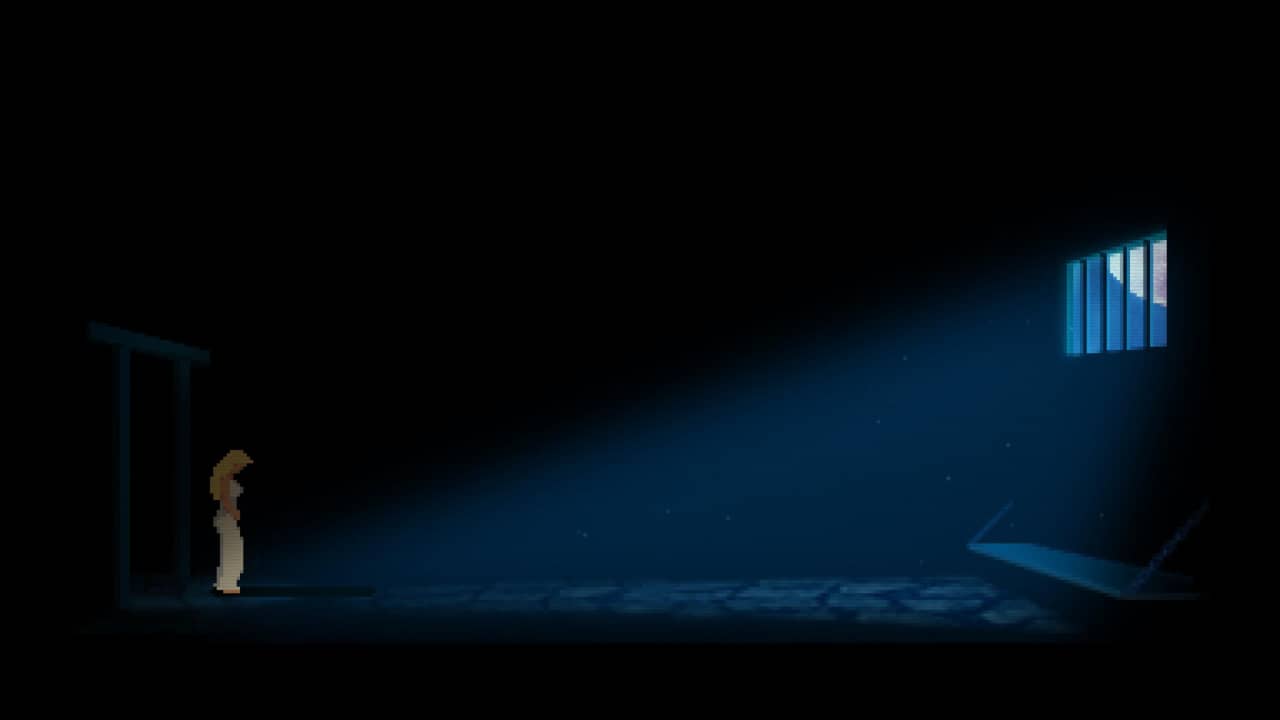
An Origin Story?
The Making of Karateka is not solely for veteran gamers or historians but for gamers as a whole. This is where we are now. Gaming is a formidable medium that can finally be taken seriously without being tarnished as mind-numbing by all those who never gave it a shot. Take a look at the credentials of those involved, and you can see these are intelligent folk. Going off on one a bit, huh? Soz.
Anyhoo, this title is inspirational – watching how tenacious Jordan was but noting all those around him that supported the dream and saw it to fruition. One of the most influential titles of its kind? Undoubtedly, but not the best game ever, of course. Jordan went on to make Prince of Persia, which you might be more familiar with…
But consider all the other titles this spawned – from titles such as Flashback and The Eternal Castle Remastered to Mortal Kombat and just about every cinematic experience we’ve witnessed in gaming. Ok, the last one is a bit dramatic, but the point is, this is essential viewing – no, an essential experience.


